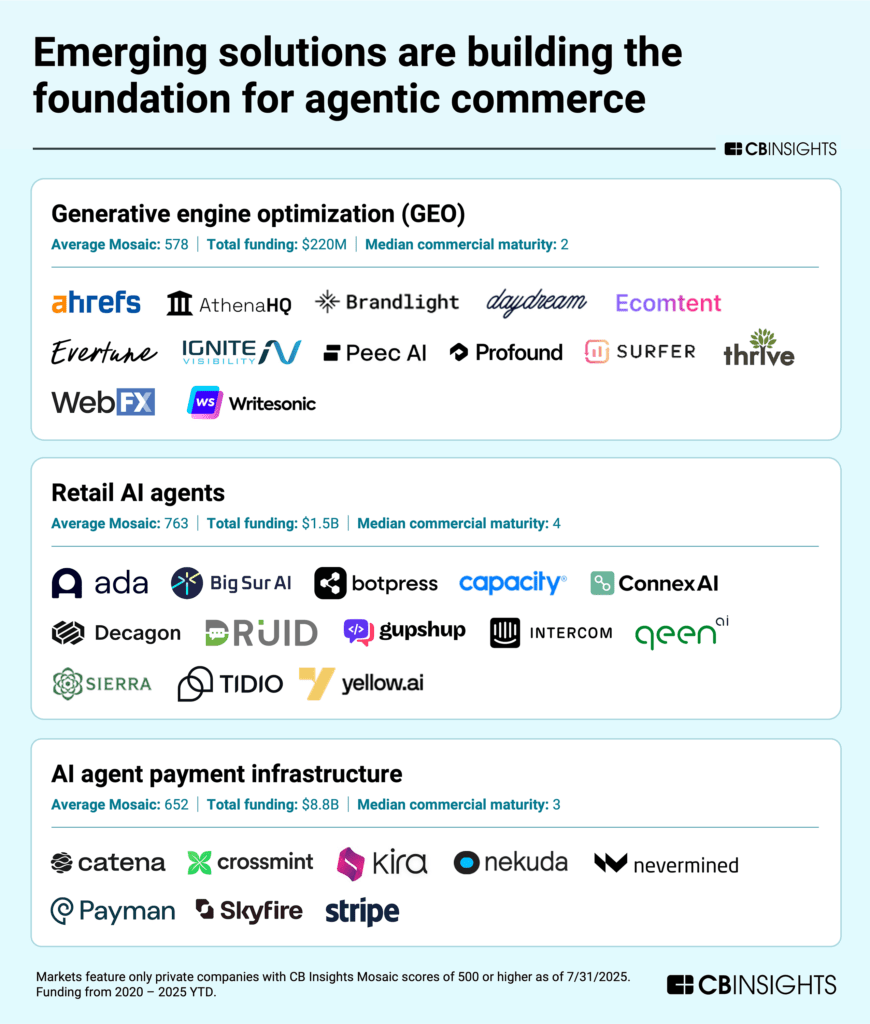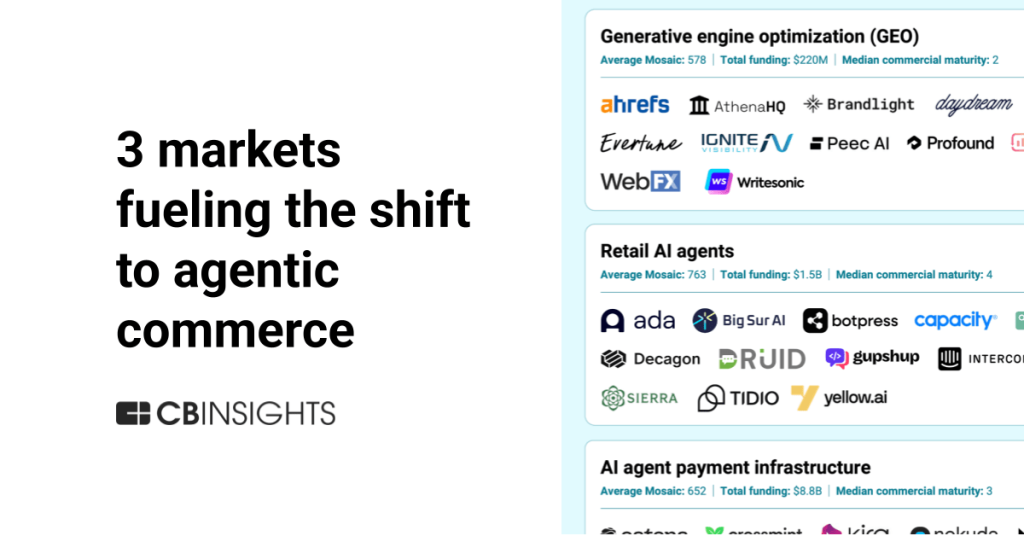Agentic shopping is the next big opportunity in commerce. Tech and payments leaders are already betting on the shift to AI-driven interfaces. But a growing wave of startups is also emerging, developing the building blocks for fully autonomous shopping.
Investors, merchants, and brands can seize this opportunity now, targeting the early movers for investment or partnership ahead of agentic shopping’s arrival.
We’ve been tracking these emerging solutions on our agentic commerce Watchlist. Within this list, we’ve identified 3 breakout markets, each accelerating a different piece of the agent-led shopping journey.
Using CB Insights’ Business Graph, which connects data across private investments, partnerships, and public company moves, we surfaced the key signals showing how startups and incumbents are building the infrastructure for agentic commerce.
Generative engine optimization (GEO) is emerging as the next frontier in digital visibility. As AI platforms become major gateways to online shopping, startups and established SEO firms alike are racing to help brands measure and boost their visibility in AI-generated responses. Nearly 40% of players in this market have launched in the last 2 years, and early leaders like Profound are gaining traction from major investors and brands. AI summaries on Google are already leading to declines in clicks across industries – as the trend accelerates and more consumers shop directly on AI platforms, GEO will become essential to shaping AI-driven commerce.
Retail AI agents are evolving beyond chatbots — and setting the stage for fully autonomous shopping. Retail AI agents are expanding beyond customer support to play a larger role in personalization and shopper engagement. Startups building purpose-built agents for retail and consumer use cases are seeing the fastest growth in CB Insights Mosaic scores, which measure company health and potential. For instance, the Mosaic score for Decagon, which serves brands including Gopuff and Curology, climbed 33% in the last year. Early adoption will give merchants a strategic edge: introducing and training agents now can build consumer trust, gather data, and prepare retailers’ operations for the leap to autonomous commerce.
Agentic payments are quickly moving from concept to infrastructure. Almost half of the companies in the growing AI agent payments infrastructure market have partnered with or raised money from established payment leaders. While the startups developing solutions for AI payment rails have the agility and technical infrastructure that the incumbents need, the major players offer the early-stage companies long-built customer trust. Effective and multi-pronged partnerships will be essential as these tools develop.



